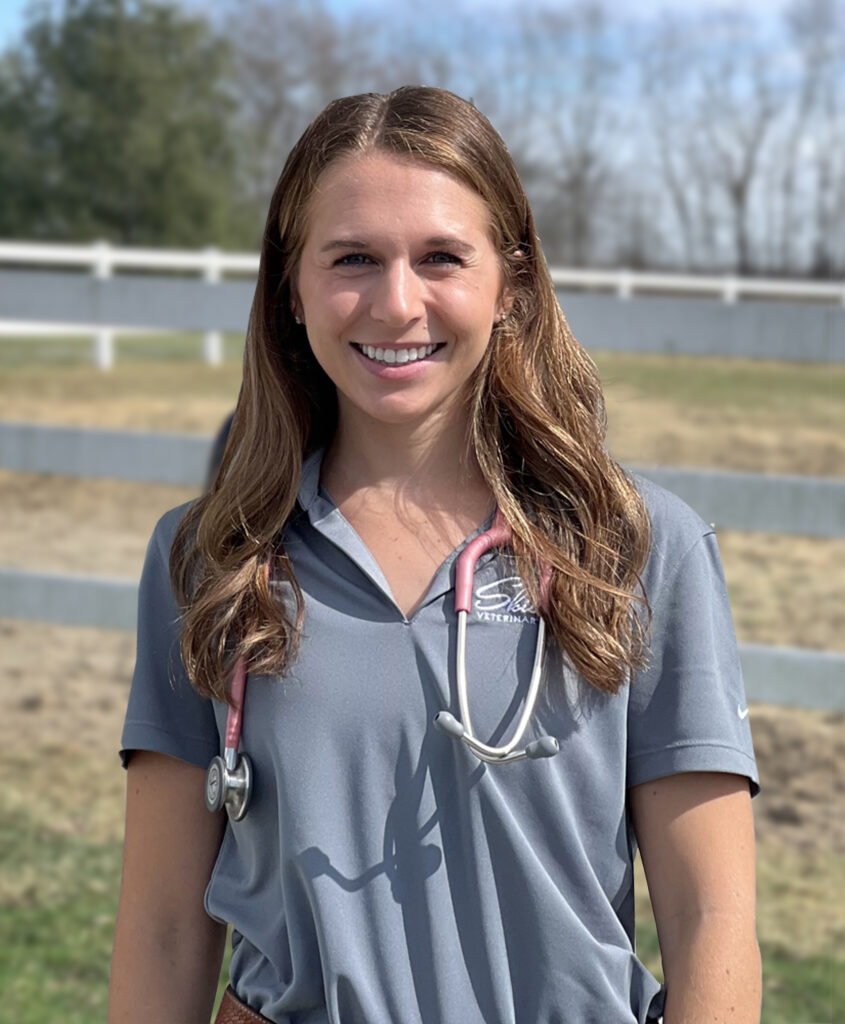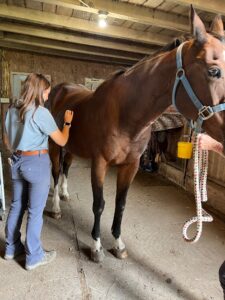ANNOUNCEMENT! Welcome Dr. Abigail Harris to our practice!
Dr. Abigail Harris, DVM

Dr. Abigail Harris was born in Anaheim, CA and moved to Auburn, AL when she was in high school. Her love for horses began at a very young age. She grew up riding and showing Quarter horses in Western pleasure. She completed her Bachelor’s and Doctor of Veterinary Medicine degrees at Auburn University.
After graduating veterinary school in 2022, she went on to complete a one-year [equine only] internship at Carolina Equine Hospital in Browns Summit, North Carolina.
Dr. Harris rotated through internal medicine, emergency medicine, sports medicine, reproduction, and general practice of equine veterinary care. Her primary areas of interest include emergency medicine, lameness, neonatology, internal medicine, and dentistry. She accepted an associate position with Skillman Veterinary Services and is excited about further growing her career in equine veterinary medicine.
Growth is good for both patient & practice
Why is it so exciting to be adding another DVM to our practice?

- increased availability for current clients
- less chance of burnout from doctors (we are in it for the #longhaul)
- more collaboration on cases —two eyes are always better than one!
- greater emergency response time when rotating between clinicians
- ability to grow practice: with more doctors we can help spread the work load
National shortage of equine veterinarians
“The equine veterinary profession is in crisis,” said AAEP President Dr. Emma Read. “In order to transform equine practice, we must address the pain points which are driving exceptional horse doctors away. Without change, future veterinary care for our nation’s horses will be greatly jeopardized.”
According to AAEP data, approximately 1.3% of new veterinary graduates enter equine practice directly each year, and another 4.5% pursue further training in equine internship positions. Within five years, however, 50% of all these veterinarians leave for small animal practice or quit veterinary medicine altogether. The primary reasons are burnout due to the personal demands of the profession and personal struggle due to the lower starting salaries for equine practice when compared to companion animal practice. Many new veterinarians begin their career with more than $200,000 in student loan debt.
While developing solutions to the five key factors affecting sustainability of equine practice, the Commission will ensure that the needs of one- and two-doctor practices are carefully considered. Approximately 50% of AAEP members operate practices of this size. Outreach to horse owners and equine industry partners will create expanded awareness and yield additional perspective.
“Every person in the profession has a role to play in its transformation,” added Dr. Read. “This is one of the largest initiatives ever undertaken by the AAEP and we look forward to collaborating with equine veterinarians and those who help support them in all facets of practice to change the numbers.”
